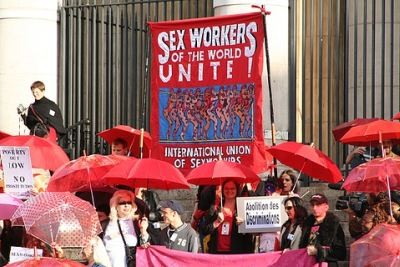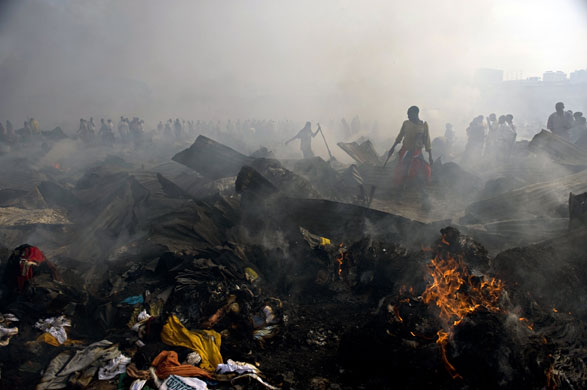
I just got back from a few days in Lagos, Nigeria, and the visit left me greatly concerned.
The so-called 'Kick Against Indiscipline' program (KAI) through which the government criminalized street trading has led to 5,000 arrests over the past three months, reports
234next.
The has led to better traffic flow on some major streets, but the city seems somehow stunted. Gone are some of the dreaded and violent area boys, but the police action has also pushed out tens of thousands of merchants: women who braided hair at the roadside in their communities....young men who sold telephone recharge cards....families that earned enough to eat by selling yam or suya (grilled meat)...auto mechanics with roadside stalls.
The government argues that the street vendors created a threatening environment in which criminals could operate. But it is not criminal to braid hair or fix cars. And the enforcement exercise seems unfairly targeted against independent entrepreneurs. The kids hawking Gala (a sausage roll manufactured by the massive UAC Foods conglomerate) are still doing business openly. Perhaps the government doesn't want to tangle with the business methods of this major corporation.
People who work for Governor Babatunde Fashola point to rising real estate prices in Oshodi, which has been stripped of much of the street vending that used to characterize the area (the photo at the very top of this blog is of Oshodi in 2007.) But rising land values and rent costs does not help the mass of people. Once again, it seems, a thriving community of lower income entrepreneurs gets the boot and the rich get a boost.
Now the government reports (see this article from the
Vanguard newspaper) that it is convening a meeting with market women, artisans, representatives of trade associations and other participants of the informal sector. Here's the description of the purpose of the get-together:
According to the Commissioner for Information and Strategy, Mr. Opeyemi Bamidele, the programme with the theme: “Increasing the efficiency of the informal sector: For a vibrant economy,” would avail them the opportunity of knowing what the administration had done to improve their well-being.It doesn't seem to me that the KIA program has increased anyone's well-being. And, at least in this description, the Governor's meeting seems more like a political ploy than a chance to work cooperatively towards a better future for Lagos.
Back in 2007 and 2008, Administration officials told me that it was likely that 80 percent of the working people in Lagos are active in the informal economy.
The informal is, indeed, the economic strength of Lagos. And the way forward for the people of Lagos would seem to be for the government to create lasting and strong partnerships with informal workers and their associations, rather than simply criminalizing street trading and driving these businesses further underground.
A good example of this type of policy of working together actually exists right in Lagos: a year ago or so, the Governor decided to require motorcycle taxi drivers to have helmets. His policy gave drivers a phase-in period to acquire them, and his administration promised to pull drivers who didn't have helmets off the street. The result: 99.9 percent of the
okada drivers acquired 2 helmets each--one for them to wear and one to give to the passenger. Similarly, the government has another rule limiting each okada to one passenger (previously it was common to see two or three people crowding on the back of one bike.) For the most part, the drivers have complied.
Why not take a similar cooperative approach with street vendors--perhaps through a licensing program. Working together is always better than burning people's kiosks and arresting them for the crime of trying to make a living in tough economic times.





















 before
before during
during and after
and after



